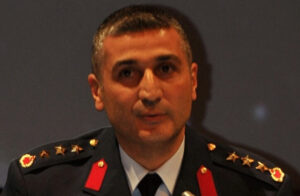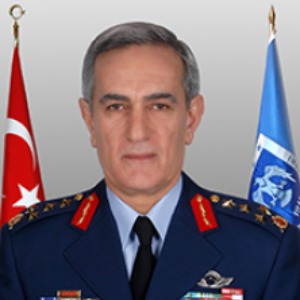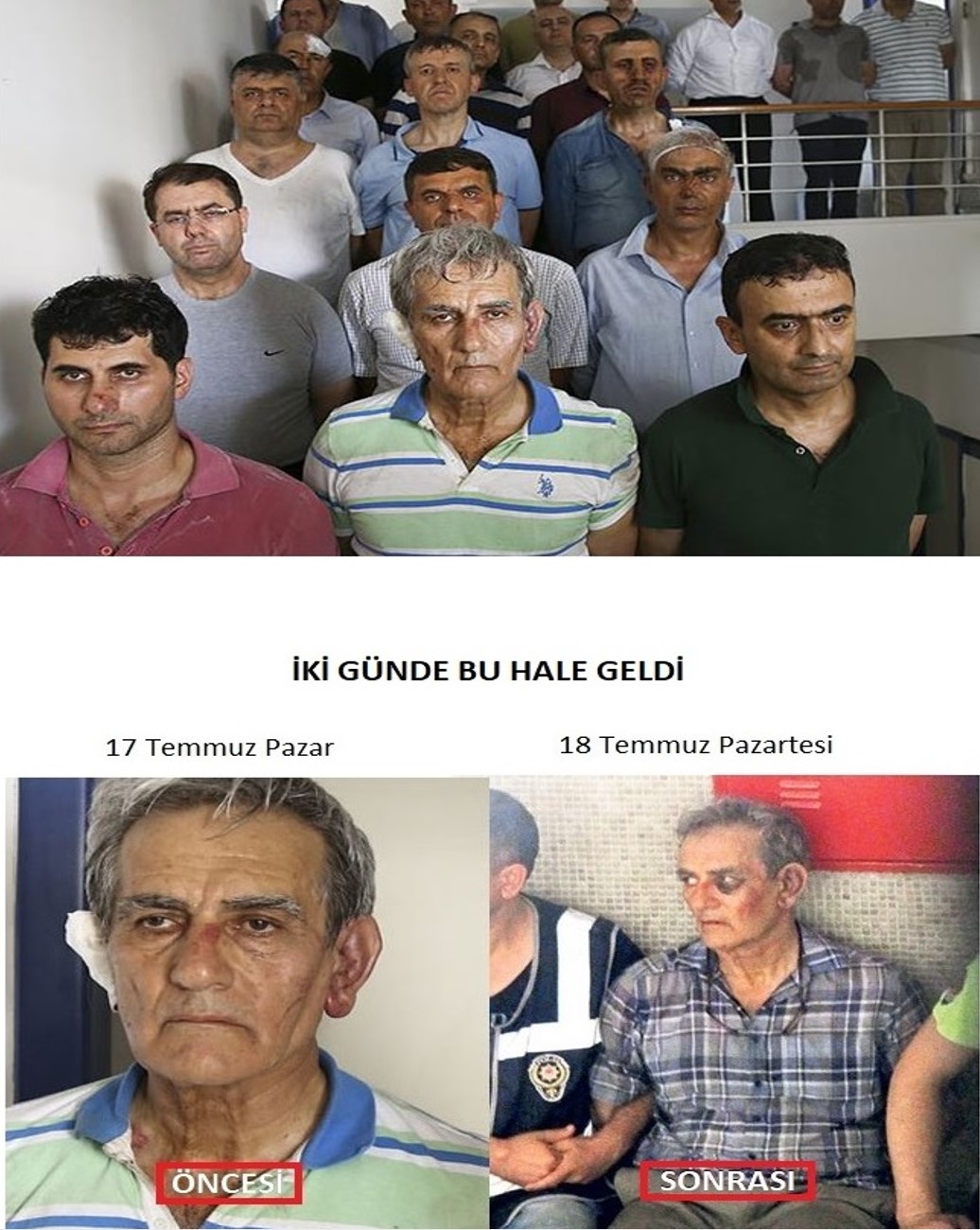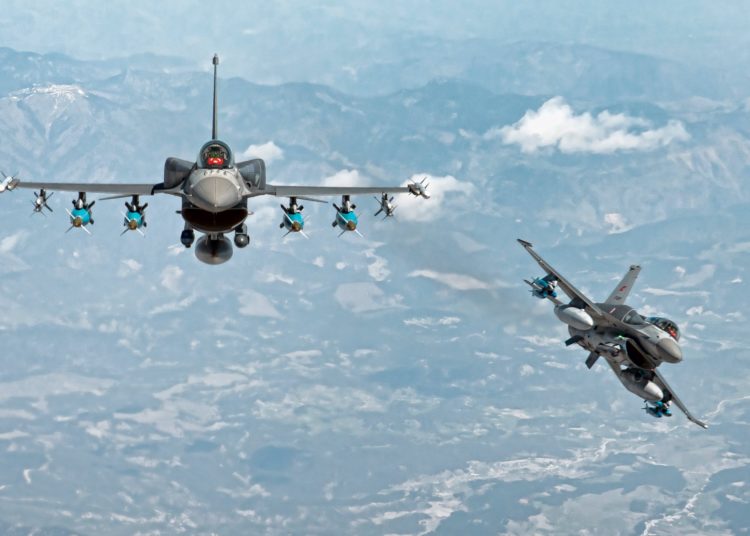Levent Kenez/Stockholm
The former deputy chief of intelligence of the Air Force Command whose alleged role in a coup attempt in Turkey on July 15, 2016 led to his arrest and subsequent life imprisonment submitted a written statement to a court on July 10, revealing previously undisclosed details about the abortive putsch.
According to the statement, an air force commander who disagreed with launching an airstrike on Syria’s capital of Damascus in 2015 was punished by being portrayed as the leader of the coup attempt, which many believe was a false flag operation organized by Turkish intelligence. Following the abortive putsch, Turkish President Recep Tayyip Erdogan built an authoritarian regime that has allowed him to completely control the judiciary and armed forces thanks to the purge of more than 150,000 civil servants and military officers.

Former brigadier general Gökhan Şahin Sönmezateş included his testimony in the statement in which he asserts that President Erdogan’s government planned an airstrike on Damascus between 2013 and 2015. Sönmezateş labeled the plan as irrational and absurd, mentioning that the plan was discussed during a meeting at the General Staff and that the air force opposed it. He added that the air force argued that Russian air defense systems were well-positioned in Syria and that Turkish jets would incur heavy losses.
Sönmezateş wrote, “The Islamists were very upset about this; the commander of the air force at the time was Gen. Akın Öztürk, and he became a target.”
Sönmezateş claimed that Öztürk had been proven right, stating that Turkish jets can’t even approach the Syrian border today, let alone attempt to strike Damascus.
The association of Öztürk, who opposed the Erdogan government’s proposed airstrike on Syria, with the coup attempt also provides intriguing details.
At the start of the coup attempt in July 2016, Öztürk, a senior member of the Supreme Military Council at the time, was at his daughter’s house, situated four or five kilometers from Akıncı Air Base, the purported headquarters of the coup plotters.

Upon receiving a call from then-air force commander Abidin Ünal, Öztürk was instructed to proceed to Akıncı Air Base and prevent the officers stationed there from engaging in any illegal acts. Informed of the coup attempt through Ünal’s call, Öztürk arrived at the base and met with then-chief of general staff Hulusi Akar, who had been brought there by the putschists. Despite the statement issued by the General Staff on July 21, 2016 asserting that Öztürk had attempted to thwart the coup throughout the night along with Akar, he was arrested. This statement was later removed from the General Staff’s website.
Sadık Üstün, a National Intelligence Organization (MİT) operative who played a key role in organizing Islamist groups in Libya in 2011 and later returned to Turkey to run political operations on behalf of President Erdogan, was the first agent who inadvertently exposed the alleged false flag. Üstün called media outlets and some officers close to the government while Öztürk was still at home, informing them that Öztürk was the mastermind of the coup.

There is no evidence proving that Öztürk, who was sentenced to life imprisonment, gave any orders to those involved in the coup attempt. Moreover, the leaders of the coup and the instructions behind it still remain unknown as of today.
Journalist Müyesser Yıldız had previously pointed out Sadık Üstün’s phone conversations in line with court documents. “Take note of the time: Akın Öztürk is still at his residence. … He hasn’t yet talked with Abidin Ünal, nor has he gone to Akıncı Air Base. … However, hours before government officials, prosecutors and the media, Sadık Üstün reports that ‘The likely military leader of the coup is Gen. Akın Öztürk.'”
Yıldız was arrested in 2020 in connection with her coverage of the coup attempt, spending five months in pretrial detention.
According to updated figures, 24,339 members of the Turkish Armed Forces (TSK) have been dismissed since 2016. The official account states that 8,651 military members took part in the coup, corresponding to only 1.5 percent of the TSK. Of those 1,761 were conscripts and 1,214 were military cadets. Given the fact that some 150 generals and thousands of lower-ranking officers were sentenced on coup charges, military experts find it odd that such an insignificant number of troops took part in the coup attempt.
Only 42 flag officers out of the 325 who were on active duty at the time of the abortive putsch managed to retain their rank or receive promotions after the coup attempt, confirming the view that Erdogan’s Islamist government was intent on transforming the military into a bastion of partisans, zealots and loyalists. It is no surprise that the first Turkish military incursion into Syria took place after July 15, 2016, given the fact that the military was apparently resisting Erdogan’s war plans in Syria as well as his alliance with Russia up until the first half of 2016.
Akar played a leading role in the purge of thousands of pro-NATO and pro-West officers from the army. Generals who opposed a military operation in Syria were either imprisoned or forced to retire.
In his written statement Sönmezateş also notes that the officers were uneasy about Turkey’s increasing alignment with Iran and Russia, along with the escalating corruption and the judiciary’s lack of response. He refutes the official narrative that the Gülen movement, a group critical of Erdogan, was behind the coup attempt. Moreover, he highlights that certain events during the coup, such as the closure of the Bosporus Bridge, aerial activities over cities and soldiers’ deployment, were not part of the original plan, leaving the reasons behind these actions unclear. During his testimony in court, Sönmezateş mentioned feeling betrayed by Akar; however, he refrained from revealing more details due to threats, including the murder of his daughter, and discovering a bullet in his cell.
After the coup attempt, suspicions surrounding the false flag operation were further fueled by the fact that the MİT Chief Hakan Fidan, who reportedly had no prior knowledge of the coup attempt, and Akar, who was unable to prevent his subordinates from participating in the failed coup, continued in their positions. The fact that Erdogan didn’t remove these two figures from their positions was interpreted by critics as him being aware of their involvement. In 2018 Akar became the minister of defense and currently serves as chairman of the parliamentary Defense Committee. Meanwhile, Fidan was appointed foreign affairs minister in June.












